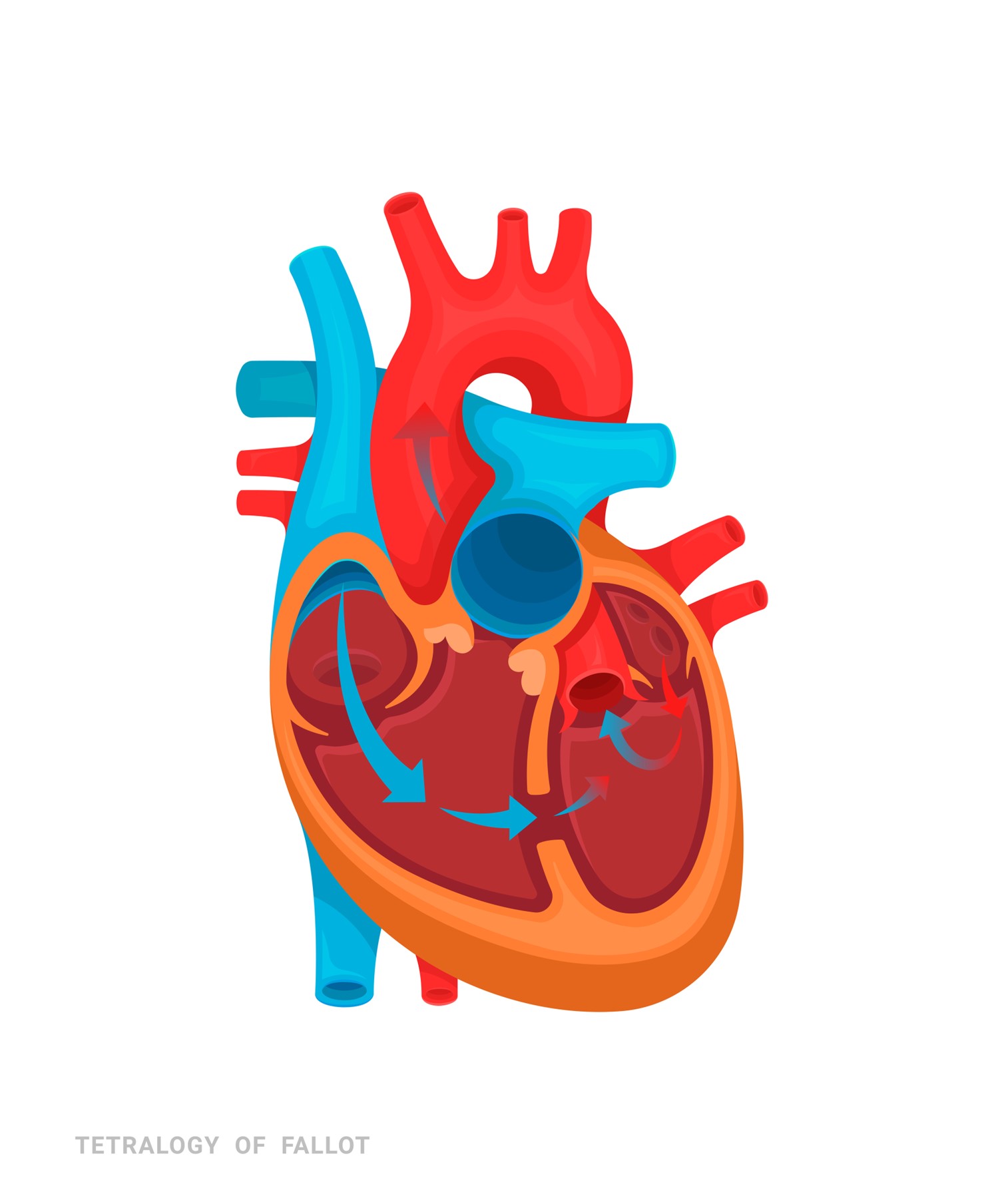It is a condition that affects the heart’s structure and function that is present since birth.
It is a group of heart defects or abnormalities that can appear at any age.
The condition may affect the heart’s walls, valves, blood vessels, or the electrical system that regulates the heartbeat.
Some forms of CHD may not cause any problems, while others can be life-threatening.
Symptoms of Congenital Heart Disease
The symptoms of CHD may vary depending on the type and severity of the condition, but some common symptoms are:
- Shortness of breath
- Cyanosis (bluish tint to the skin, lips, and nails)
- Poor feeding in infants
- Slow growth and development
- Swelling in the hands, ankles, or feet
- Chest pain
- Fainting or dizziness
- Rapid heartbeat
Causes and Risk Factors of Congenital Heart Disease
The exact causes of CHD are not known, but certain risk factors can increase the chances of developing the condition, including:
- Genetics
- Exposure to certain medications or substances during pregnancy
- Infections during pregnancy
- Chronic medical conditions in the mother
- Maternal alcohol or drug abuse
Diagnosis of Congenital Heart Disease
The diagnosis of CHD typically involves several tests, including:
- Physical examination
- Electrocardiogram (ECG)
- Echocardiogram
- Chest X-ray
- Cardiac catheterization
Treatment of Congenital Heart Disease
- Medications
- Surgery
- Catheter procedures
- Heart transplant
Congenital Heart Disease: Preventive Measures
There are no known ways to prevent CHD, but certain measures can reduce the risk of the condition, such as:
- Avoiding exposure to harmful substances during pregnancy
- Managing chronic medical conditions
- Avoiding alcohol and drug abuse
Congenital Heart Disease: Lifestyle Changes
Making certain lifestyle changes can help manage the symptoms of CHD, including:
- Quitting smoking
- Eating a healthy diet
- Getting regular exercise
- Managing stress
- Getting enough sleep
Diet changes for People Dealing with Congenital Heart Disease
- Eating a healthy diet can help manage CHD. Some dietary changes that can be helpful are:
- Limiting salt intake
- Eating a diet low in saturated fat and cholesterol
- Eating plenty of fruits, vegetables, and whole grains
- Limiting processed foods and sugary drinks
People with congenital heart disease can live long, healthy lives with proper medical care and management. Regular check-ups with a cardiologist and following a healthy lifestyle can help prevent complications and improve overall health. It is important for individuals with congenital heart disease to stay informed about their condition and to work closely with their healthcare team to manage their care.

